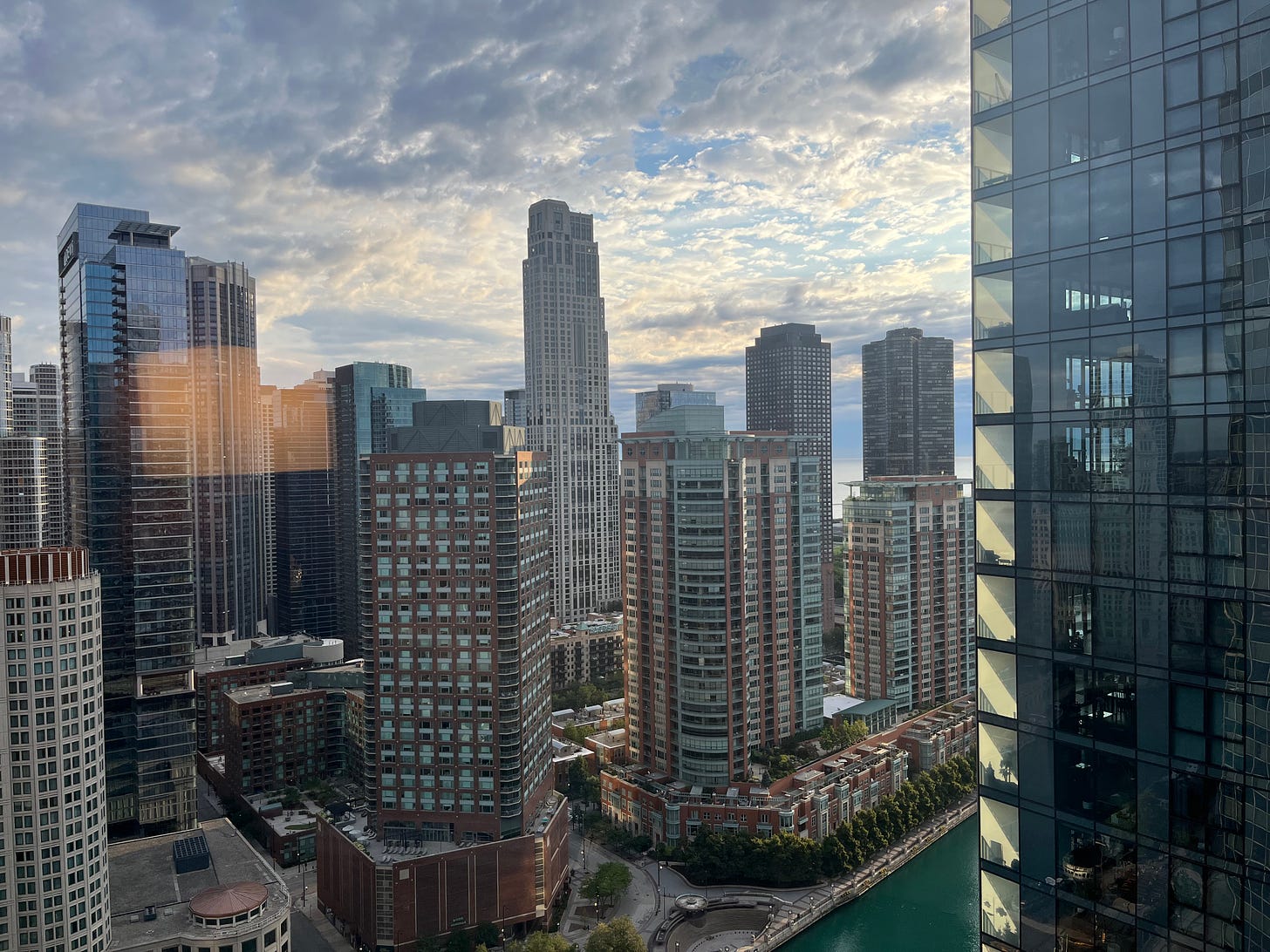It was a joy to spend the past weekend in Chicago at Interfaith America’s “Interfaith Leadership Summit.”
Although it feels like another lifetime, it was only four years ago that I attended my first Interfaith America (fka Interfaith Youth Core) event in August of 2018. New to the staff at Neighborly Faith and a senior at Moody Bible Institute, I knew very little about faith traditions outside of Christianity. I am slightly embarrassed to admit that, as an evangelical, I anticipated a hostile and angry reception. While I wanted to enter with the intent to learn, I kept an eye on the nearest exit in case things turned sour.
I could not have been more wrong. The minute the elevator doors opened to the conference lobby, I was welcomed by a team of volunteers who introduced me to staff members, handed me a pen and notepad (along with a conference t-shirt, of course), and offered a tour of the meeting space. The plenary and breakout sessions were filled with folks who looked like me, shared similar values, and asked good questions that provoked rich conversation.
Now four years later, I had the chance to invite several emerging leaders to the Interfaith Leadership Summit as first-time attendees. While the conference has certainly grown over the past four years, those core values and experiences remained the same.
There are many reasons I love the work Interfaith America is doing. In the space that remains, I’d like to share a few reasons I wanted to bring several folks to the conference this weekend.
First, I believe the question of engaging with folks across lines of religious difference is not one of “if” but “when” — not “if you encounter a person of another faith” but “when you encounter a person of faith, how will you act? What will you do?” It is foundational that emerging Christian leaders spend time in spaces that represent the plurality of our nation and local communities.
Second, I believe an ‘interfaith America’ is one where democracy may flourish. America has never and will never be a ‘Christian’ nation. Although Christianity has undoubtedly held a primary role in the imagination of America, the myth that God’s divine hand is over America in a particular (or eschatological way) is one propagated by Christian nationalists seeking to fuse together religious and political supremacy. A true liberal democracy, rather, is one where all have value, voice, and the freedom to exercise influence on our shared public life. This cannot be accomplished when one faith tradition dictates the laws, values, and norms of an entire nation.
Third, the promotion of religious pluralism is a practice of neighbor love. If we are to love our neighbors well, we must fight for their rights and voice in our communities. Protesting the establishment of mosques, gurdwaras, and temples in our neighborhoods will not move anyone closer to Christ. Neither will banning religious garments like hijabs and turbans or refusing to acknowledge religious holidays like Eid and Hanukkah move our neighbors to see the Church as an ally.
Finally, this work becomes concrete when it becomes personal. For all the social good that religious pluralism offers, one of the strongest reasons that the vision of an interfaith America is central in my life is because of my Muslim, Jewish, Sikh, and Buddhist friends who live in a society where their rights and freedoms are not actualized. Close proximity and attunement to these realities make tangible what, to many, is hypothetical: marginalization, oppression, and minoritization.
Reading:
Are You Sure You’re Not Guilty of the ‘Millennial Pause’? - Kate Lindsay (The Atlantic)
Clerics for Democracy! - Rabbi Michael Holzman (What Went Wrong?)
The Overstory - Richard Powers
Watching:
Starstruck (HBO Max)
Modern Family (Hulu)
Listening:
Mr. Percocet - Noah Cyrus
Pink + White - Remi Wolf
ACT II: EXILE (Album) - Young the Giant





